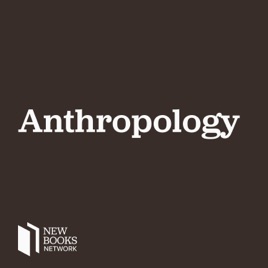
Advertise on podcast: New Books in Anthropology
Rating
4.2 from
Country
This podcast has
1055 episodes
Language
Publisher
Explicit
No
Date created
2011/03/09
Average duration
49 min.
Release period
2 days
Description
Interviews with Anthropologists about their New Books Support our show by becoming a premium member! https://newbooksnetwork.supportingcast.fm/anthropology
Social media
Check New Books in Anthropology social media presence
Podcast episodes
Check latest episodes from New Books in Anthropology podcast
Thuy Linh Nguyen Tu, "Experiments in Skin: Race and Beauty in the Shadows of Vietnam" (Duke UP, 2021)
2024/02/26
Through a creative focus on skin, in Experiments in Skin: Race and Beauty in the Shadows of Vietnam (Duke UP, 2021), Thuy Linh Nguyen Tu examines the ongoing influence of the Vietnam War on contemporary ideas about race and beauty. Framing skin as the site around which these ideas have been formed, Tu foregrounds the histories of militarism in the production of US biomedical knowledge and commercial cosmetics. She uncovers the efforts of wartime scientists in the US Military Dermatology Research Program to alleviate the environmental and chemical risks to soldiers' skin. These dermatologists sought relief for white soldiers while denying that African American soldiers and Vietnamese civilians were also vulnerable to harm. Their experiments led to the development of pharmaceutical cosmetics, now used by women in Ho Chi Minh City to tend to their skin, and to grapple with the damage caused by the war's lingering toxicity.
In showing how the US military laid the foundations for contemporary Vietnamese consumption of cosmetics and practices of beauty, Tu shows how the intersecting histories of militarism, biomedicine, race, and aesthetics become materially and metaphorically visible on skin.
Yadong Li is a PhD student in socio-cultural anthropology at Tulane University. He is interested in the anthropology of time, hope studies, and post-structuralist philosophy. If you are interested in any of these topics, feel free to contact him by email: yli88@tulane.edu / lydooooong@gmail.com.
Learn more about your ad choices. Visit megaphone.fm/adchoices
Support our show by becoming a premium member! https://newbooksnetwork.supportingcast.fm/anthropology
more
Mai Corlin, "The Bishan Commune and the Practice of Socially Engaged Art in Rural China" (Palgrave MacMillan, 2020)
2024/02/26
On the podcast today, I am joined by Mai Corlin, who is researcher at the department of cross-cultural and regional studies in the University of Copenhagen. Mai will be talking about her new book, The Bishan Commune and the Practice of Socially Engaged Art in Rural China (Palgrave Macmillan, 2020)
Mai’s book examines the new rural reconstruction movement in Bishan village, Anhui province. She uses the Bishan Commune as a case study to explore the ways that art and culture can revive regional economies. The book´s focus is the socially engaged art projects in the Chinese countryside, with the artists and intellectuals who are involved, the villagers they meet and the local authorities with whom they negotiate. In recent years an increasing number of urban artists have turned towards the countryside in an attempt to revive rural areas perceived to be in a crisis. The vantage point of this book is the Bishan Commune. In 2010, Ou Ning drafted a notebook entitled Bishan Commune: How to Start Your Own Utopia. The notebook presents a utopian ideal of life based on anarchist Peter Kropotkin’s idea of mutual aid. In 2011 the Commune was established in Bishan Village in Anhui Province. The main questions of this book thus revolve around how an anarchist, utopian community unfolds to the backdrop of the political, social and historical landscape of rural China, or more directly: How do you start your own utopia in the Chinese countryside?
Learn more about your ad choices. Visit megaphone.fm/adchoices
Support our show by becoming a premium member! https://newbooksnetwork.supportingcast.fm/anthropology
more
Aaron J. Jackson, "Worlds of Care: The Emotional Lives of Fathers Caring for Children with Disabilities" (U California Press, 2021)
2024/02/25
Vulnerable narratives of fatherhood are few and far between; rarer still is an ethnography that delves into the practical and emotional realities of intensive caregiving. Grounded in the intimate everyday lives of men caring for children with major physical and intellectual disabilities, Worlds of Care: The Emotional Lives of Fathers Caring for Children with Disabilities (U California Press, 2021) undertakes an exploration of how men shape their identities in the context of caregiving. Anthropologist Aaron J. Jackson fuses ethnographic research and creative nonfiction to offer an evocative account of what is required for men to create habitable worlds and find some kind of “normal” when their circumstances are anything but. Combining stories from his fieldwork in North America with reflections on his own experience caring for his severely disabled son, Jackson argues that care has the potential to transform our understanding of who we are and how we relate to others.
Aaron J. Jackson is a Lecturer in Anthropology at Victoria University. His research focuses on fatherhood, care, and disability.
Alize Arıcan is a Postdoctoral Associate at Rutgers University's Center for Cultural Analysis. She is an anthropologist whose research focuses on urban renewal, futurity, care, and migration in Istanbul, Turkey. Her work has been featured in Current Anthropology, City & Society, Radical Housing Journal, and entanglements: experiments in multimodal ethnography.
Learn more about your ad choices. Visit megaphone.fm/adchoices
Support our show by becoming a premium member! https://newbooksnetwork.supportingcast.fm/anthropology
more
Laurence Ralph, "Sito: An American Teenager and the City That Failed Him" (Grand Central Publishing, 2023)
2024/02/21
In September of 2019, Luis Alberto Quiñonez—known as Sito— was shot to death as he sat in his car in the Mission District of San Francisco. He was nineteen. His killer, Julius Williams, was seventeen. It was the second time the teens had encountered one another. The first, five years before, also ended in tragedy, when Julius watched as his brother was stabbed to death by an acquaintance of Sito’s. The two murders merited a few local news stories, and then the rest of the world moved on.
But for the families of the slain teenagers, it was impossible to move on. And for Laurence Ralph, the stepfather of Sito’s half-brother who had dedicated much of his academic career to studying gang-affiliated youth, Sito’s murder forced him to revisit a subject of scholarly inquiry in a profoundly different, deeply personal way.
Written from Ralph's perspective as both a person enmeshed in Sito's family and as an Ivy League professor and expert on the entanglement of class and violence, SITO: An American Teenager and the City that Failed Him (Grand Central Publishing, 2024) is an intimate story with an message about the lived experience of urban danger, and about anger, fear, grief, vengeance, and ultimately grace.
Laurence Ralph is a Professor of Anthropology at Princeton University, where he is the Director for the Center on Transnational Policing. Before that, he was a tenured professor at Harvard University for eight years. He is the author of Renegade Dreams: Living Through Injury in Gangland Chicago (2014) and The Torture Letters: Reckoning With Police Violence (2020), both published by University of Chicago Press. He is currently a Guggenheim Fellow, a fellow of the Radcliffe Institute for Advanced Study, and a member of the Institute for Advanced Study at Princeton; he has also been the recipient of fellowships from the Guggenheim National Science Foundation, the Carnegie Corporation, and the Ford Foundation. He lives in Princeton, New Jersey with his wife and daughter.
Reighan Gillam is an Associate Professor in the Department of Latin American, Latino, and Caribbean Studies at Dartmouth College. Her research examines the ways in which Afro-Brazilian media producers foment anti-racist visual politics through their image creation. She is the author of Visualizing Black Lives: Ownership and Control in Afro-Brazilian Media (University of Illinois Press).
Learn more about your ad choices. Visit megaphone.fm/adchoices
Support our show by becoming a premium member! https://newbooksnetwork.supportingcast.fm/anthropology
more
What Can Australian Message Sticks Teach Us About Literacy?
2024/02/21
Ingrid Piller speaks with Piers Kelly about a fascinating form of visual communication, Australian message sticks.
What does a message stick look like? What is its purpose, and how has the use of message sticks changed over time from the precolonial period via the late 19th/early 20th century and into the present? Why do we know so little about message sticks, and how has colonialism shaped our knowledge about message sticks? How did message sticks fit into the multilingual communication ecology of precolonial Australia? And, of course, the million-dollar question: are message sticks a form of writing?
First published on August 18, 2020.
“Chats in Linguistic Diversity” is a podcast about linguistic diversity in social life brought to you by the Language on the Move team. We explore multilingualism, language learning, and intercultural communication in the contexts of globalization and migration.
Learn more about your ad choices. Visit megaphone.fm/adchoices
Support our show by becoming a premium member! https://newbooksnetwork.supportingcast.fm/anthropology
more
Matthew Wolf-Meyer and Denielle A. Elliott, "Naked Fieldnotes: A Rough Guide to Ethnographic Writing (U Minnesota Press, 2024)
2024/02/17
Ethnographic research has long been cloaked in mystery around what fieldwork is really like for researchers, how they collect data, and how it is analyzed within the social sciences. Naked Fieldnotes: A Rough Guide to Ethnographic Writing (U Minnesota Press, 2024), a unique compendium of actual fieldnotes from contemporary ethnographic researchers from various modalities and research traditions, unpacks how this research works, its challenges and its possibilities.
In this volume, Denielle Elliott and Matthew J. Wolf-Meyer pair fieldnotes based on observations, interviews, drawings, photographs, soundscapes, and other contemporary modes of recording research encounters with short, reflective essays, offering rich examples of how fieldnotes are composed and shaped by research experiences. These essays unlock the experience of conducting qualitative research in the social sciences, providing clear examples of the benefits and difficulties of ethnographic research and how it differs from other forms of writing such as reporting and travelogue. By granting access to these personal archives, Naked Fieldnotes unsettles taboos about the privacy of ethnographic writing and gives scholars a diverse, multimodal approach to conceptualizing and doing ethnographic fieldwork.
Michael O. Johnston, Ph.D. is a Assistant Professor of Sociology at William Penn University. He is the author of The Social Construction of a Cultural Spectacle: Floatzilla (Lexington Books, 2023) and Community Media Representations of Place and Identity at Tug Fest: Reconstructing the Mississippi River (Lexington Books, 2022). His general area of study is about the construction of identity and place. He is currently conducting research for his next project that looks at nightlife and the emotional labor that is performed by bouncers at bars and nightclubs. To learn more about Michael O. Johnston you can go to his website, Google Scholar, Twitter @ProfessorJohnst, or by email at johnstonmo@wmpenn.edu.
Learn more about your ad choices. Visit megaphone.fm/adchoices
Support our show by becoming a premium member! https://newbooksnetwork.supportingcast.fm/anthropology
more
Laurence Cox et al., "Handbook of Research Methods and Applications for Social Movements" (Edward Elgar, 2024)
2024/02/17
Addressing practice-oriented questions, this handbook engages with both theoretical and political dimensions, unpacking the multidimensional nature of social movement research for new and established scholars alike and for movement-based as well as academic researchers across many disciplines. Divided into three thematic sections, this stimulating Handbook dives deep into discussions relating to the methodological challenges raised by researching social movements, the technical questions of how such research is conducted, and then to more practical considerations about the uses and applications of movement research. Expert contributors and established researchers utilise real-world examples to explore the methodological challenges from a range of perspectives including classical, engaged, feminist, Black, Indigenous and global Southern viewpoints.
Handbook of Research Methods and Applications for Social Movements (Edward Elgar, 2024) will not only appeal to experienced researchers, but also to activists who have started to think about researching their own movements and to politically engaged students. It speaks to new and established scholars in relevant disciplines such as sociology, political science, anthropology, geography, development studies, gender studies, and race and ethnic studies, and particularly those looking to better appreciate the different research methods for understanding social movements. You can download a copy of the Introduction for free HERE.
Learn more about your ad choices. Visit megaphone.fm/adchoices
Support our show by becoming a premium member! https://newbooksnetwork.supportingcast.fm/anthropology
more
Michael Stausberg, "Religions, Mumbai Style: Events-Media-Spaces" (Oxford UP, 2023)
2024/02/15
Mumbai is generally recognized as an environment of extraordinary religious diversity. The city is known at one and the same time for a habitual cosmopolitanism and a series of violent religion-related conflicts and clashes.
While there is much academic scholarship on various aspects of urban history and realities, Michael Stausberg's edited volume Religions, Mumbai Style: Events-Media-Spaces (Oxford UP, 2023) is the first international academic publication focusing on religion(s) in Mumbai. An extended introductory essay provides a scenario of the religious history of the city from the earliest colonial periods to the present; it also discusses such topics as public celebration and landmark religious places. By taking a thematic approach, the contributions highlight the dynamics of religious life in the city. Chapters discuss spatial settings such as so-called slums (Dharavi) and ghettos (Mumbra), but also roadside shrines and taxis. Other chapters focus on class and civil society organizations. Contributions discuss the crossing of religious boundaries, e.g., in dealing with intermarriage and conversion, and challenges faced by religious groups as to how to reconcile the religious diversity of the city with their own desire for recognition. Lines of tension and conflict often run within, and not so much between, communities.The two final chapters of the volume address the reflection of religion in fiction set in Mumbai and in the work of the Bombay poet Arun Kolatkar.
Raj Balkaran is a scholar of Sanskrit narrative texts. He teaches at the Oxford Centre for Hindu Studies and at his own virtual School of Indian Wisdom. For information see rajbalkaran.com.
Learn more about your ad choices. Visit megaphone.fm/adchoices
Support our show by becoming a premium member! https://newbooksnetwork.supportingcast.fm/anthropology
more
Ed Simon, "Relic" (Bloomsbury. 2024)
2024/02/15
Object Lessons is a Bloomsbury series of short, beautifully designed books about the hidden lives of ordinary things. This book, Relic, by Dr. Ed Simon was published in 2024.
Every culture, every religion, every era has enshrined otherwise regular objects with a significance which stretches beyond their literal importance. Whether the bone of a Catholic martyr, the tooth of a Buddhist lama, or the cloak of a Sufi saint, relics are material conduits to the immaterial world. Yet relics aren't just a feature of religion. The exact same sense of the transcendent animates objects of political, historical, and cultural significance.
From Abraham Lincoln's death mask to Vladimir Lenin's embalmed corpse, Emily Dickinson's envelopes to Jimi Hendrix's guitar pick, relics are the objects which the faithful understand as being more than just objects. Material things of sacred importance, relics are indicative of a culture's deepest values.
This interview was conducted by Dr. Miranda Melcher whose forthcoming book focuses on post-conflict military integration, understanding treaty negotiation and implementation in civil war contexts, with qualitative analysis of the Angolan and Mozambican civil wars.
Learn more about your ad choices. Visit megaphone.fm/adchoices
Support our show by becoming a premium member! https://newbooksnetwork.supportingcast.fm/anthropology
more
Paul Katsafanas, "Philosophy of Devotion: The Longing for Invulnerable Ideals" (Oxford UP, 2022)
2024/02/13
Why do some of our identity-defining commitments resist reason and critical reflection, and why do we persist in them even when they threaten our happiness, safety, and comfort?
Paul Katsafanas argues in his book Philosophy of Devotion:The Longing for Invulnerable Ideals (Oxford UP, 2023) that these commitments involve an ethical stance that he calls devotion to sacred ideas.
A sacred value is one that we cannot trade with ordinary values, or even consider trading off. When a value is sacred, no rational considerations will disrupt commitment to it. Philosophy of Devotion offers a detailed philosophical account and defense of these features both reasonable and unreasonable, beneficial and detrimental. Katsafanas explains that a life with meaningful commitments is richer and more meaningful than a life without deep, sustained commitments.
At the same time, that same devotion can deform into forms of individual and group fanaticism that can be alienating, extremist, and violent. This fanaticism is driven by feelings of persecution and threat to a fragile self, and exacerbated by feelings of ressentiment, a growing anger and resentment of opposition that becomes self-perpetuating.
In this book Katsafanas also provides an alternative to fanaticism, a way to express non-pathological forms of devotion. With this approach, individuals can avoid the dangers of fanaticism on the one hand and an empty lack of meaning on the other. This perpetual quest requires maintaining a form of existential flexibility, which may include oscillation between affirming these sacred values and deepening understanding through consideration of challenging questions.
Recommended reading: The True Believer by Eric Hoffer
Meghan Cochran studies belief and action as a technologist working in customer experience and as a student of religion, business, and literature.
Learn more about your ad choices. Visit megaphone.fm/adchoices
Support our show by becoming a premium member! https://newbooksnetwork.supportingcast.fm/anthropology
more
Amira Mittermaier, "Giving to God: Islamic Charity in Revolutionary Times" (U California Press, 2019)
2024/02/12
In her stunning new book, Giving to God: Islamic Charity in Revolutionary Times (University of California Press, 2019), Amira Mittermaier, Associate Professor of Religion and Anthropology at the University of Toronto, conducts a dazzling and at many times moving ethnography of an Islamic economy of giving and charity in Egypt. By presenting an intimate portrait of a range of actors and organizations, who both give and receive charity, Mittermaier highlights often unrecognized political practices and horizons that disrupt dominant liberal secular logics of humanitarian charity. In our conversation, we discussed a range of topics including the productive tension between revolutionary politics and everyday practices of giving, competing visions of the “poor” and of the interaction of charity and justice, intersections of social and divine justice, the relationship between eschatology, pious practices of charity, and the materiality of the everyday, and the political possibilities offered by “Giving to God” in a moment in Egypt marked by the rise and dominance of neoliberal authoritarianism. This splendidly written book will be widely discussed and debated by scholars of Islam, anthropology, religion, and the Middle East; it will also make a terrific text for courses on these and other topics.
SherAli Tareen is Associate Professor of Religious Studies at Franklin and Marshall College. His research focuses on Muslim intellectual traditions and debates in early modern and modern South Asia. His academic publications are available here. He can be reached at sherali.tareen@fandm.edu. Listener feedback is most welcome.
Learn more about your ad choices. Visit megaphone.fm/adchoices
Support our show by becoming a premium member! https://newbooksnetwork.supportingcast.fm/anthropology
more
Rob Percival, "The Meat Paradox: Eating, Empathy, and the Future of Meat" (Pegasus, 2022)
2024/02/12
Our future diet will be shaped by diverse forces. It will be shaped by novel technologies, by geopolitical tensions, and the evolution of cultural preferences, by shocks to the status quo-- pandemics and economic strife, the escalation of the climate and ecological crises--and by how we choose to respond. It will also be shaped by our emotions. It will be shaped by the meat paradox.
"Should we eat animals?" was, until recently, a question reserved for moral philosophers and an ethically minded minority, but it is now posed on restaurant menus and supermarket shelves, on social media and morning television. The recent surge in popularity for veganism in the UK, Europe, and North America has created a rupture in the rites and rituals of meat, challenging the cultural narratives that sustain our omnivory.
In The Meat Paradox: Eating, Empathy, and the Future of Meat (Pegasus Books, 2022), Rob Percival, an expert in the politics of meat, searches for the evolutionary origins of the meat paradox, asking when our relationship with meat first became emotionally and ethically complicated. Every society must eat, and meat provides an important source of nutrients. But every society is moved by its empathy. We must all find a way of balancing competing and contradictory imperatives. This new book is essential reading for anyone interested in the origins of our empathy, the psychology of our dietary choices, and anyone who has wondered whether they should or shouldn't eat meat.
Rob Percival is Head of Policy at the Soil Association, Britain's leading food and farming charitable organization. He has been shortlisted for the Guardian's International Development Journalism Prize as well as the Thompson Reuters Food Sustainability Media Award.
Caleb Zakarin is the Assistant Editor of the New Books Network (Twitter: @caleb_zakarin).
Learn more about your ad choices. Visit megaphone.fm/adchoices
Support our show by becoming a premium member! https://newbooksnetwork.supportingcast.fm/anthropology
more
Podcast reviews
Read New Books in Anthropology podcast reviews
dkd84
2019/05/10
Engaging and informative
This podcast covers a wide range of books, and the conversations are really interesting.
TricksterCoyote
2014/11/26
Great podcast! Great info!
I love hearing about new books coming out in anthropology! Thank you for sharing!
Busyprofessorseeksshortpodcast
2018/01/30
Mixed feelings
I like the range of books you cover in the series. However, I'd appreciate a much shorter show. To actually concentrate on an hour long not mindless s...
more
Jdwright0909
2017/05/23
Clovis Texhnology Episode
The episode on Clovis Texhnology must have been mistkenly uploaded with a different episode. Please fix! The current episode is something completely d...
more
Podcast sponsorship advertising
Start advertising on New Books in Anthropology & sponsor relevant audience podcasts
You may also like these social sciences Podcasts

4.6
25
49
ABA on Call
CentralReach
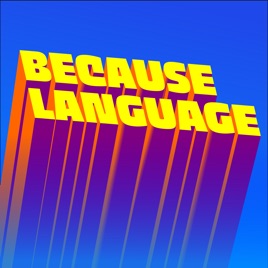
4.7
99
88
Because Language - a podcast about linguistics, the science of language.
Daniel Midgley, Ben Ainslie, and Hedvig Skirgård

4.7
17
87
Talks On Psychoanalysis
International Psychoanalytical Association

4.3
191
292
Paranormal Almanac
Curt Sandvig
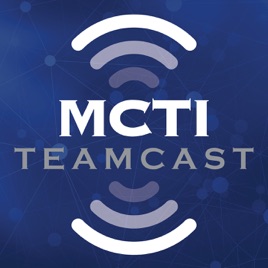
4.8
95
42
Teamcast
Mission Critical Team Institute

4.9
11
37
PsychCrunch
The British Psychological Society Research Digest
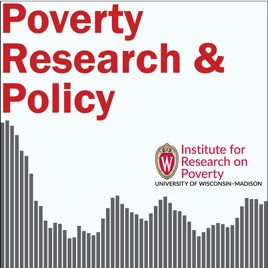
4.9
24
100
Poverty Research & Policy
Institute for Research on Poverty

4.7
44
205
Full PreFrontal
Sucheta Kamath
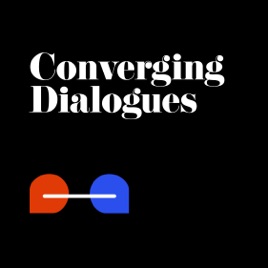
4.8
41
311
Converging Dialogues
Converging Dialogues

4.9
95
395
Behavioral Grooves Podcast
Kurt Nelson, PhD and Tim Houlihan



